Enzyme-recycled – Ukraine-war 05-11-2022 - Arhive
Enzyme-recycled – Ukraine-war
-Radicigroup – Sustainability of the entire textile supply chain: Performance days fair
At the fair, the Group emphasizes its contribution to the sustainability of the entire textile supply chain
Performance Days is the fair dedicated to trends and innovations in the field of yarns, fabrics and
accessories: RadiciGroup, with its Advanced Textile Solutions Business Area, cannottherefore miss the appointment scheduled for 3 and 4 November in Munich for present the strengths of your offer to professionals.
Sustainability is the main ingredient of the textile solutions proposed by the Group, committed increasingly in reducing the environmental impact of processes and products aimed at different sectors, such as sportswear, athleisure, workwear and safety.
“Our fibers are produced in Europe – underlines Marco De Silvestri, Head of Sales & Advanced Textile Solutions Business Area Marketing – We have strong control of upstream supply chain, especially in the field of polyamide where we are also integrated with plants proprietary chemicals: this guarantees the quality of the polymers, complete traceability and rigorous
measurement of the environmental impact of our entire offer. In addition, we place ourselves as a partner of our customers engaged in the development of innovative and circular solutions, without relative compromises to technical performance, which remains central in the application sectors we address “.
RadiciGroup focuses heavily on offering solution dyed products, i.e. colored materials in the extrusion that allow a considerable saving of water and energy, guaranteeing greater color retention over time.
This technique is applicable both to virgin productions and to those that want to optimize technical and environmental performance: Renycle®, Repetable® and Biofeel® are the brands that identify, respectively, the offer of recycled nylon, recycled polyester and bio-based materials.
“Our efforts to reduce the environmental impact of production – concludes De Silvestri – continue and are also strengthened thanks to partnerships with other players in the supply chain who, like us, make sustainability is the key word of its business strategy “.
The collaboration of RadiciGroup with Fibrant, a specialized company, is in this direction in the production of chemical intermediates, including Ecolactam®, with a reduced “carbon footprint”, which it will allow the Group to further improve the values relating to its emissions. Thanks to far-sighted choices and the actions implemented, RadiciGroup in the last decade has decreased by 70% of greenhouse gas emissions at Group level, rising from approximately 700,000 tons per year CO2 equivalent to about 200,000 tons. And the goal is continuous improvement, investing in cutting-edge technologies and focusing on sustainable value chains.
These and other issues are discussed on Thursday 3 November at 3.45 pm with Loris Maestri, R&D Product Development Engineer of the Advanced Textile Solutions Business Area who will give a presentation entitled “RadiciGroup approach to sustainability”. Click here for details.
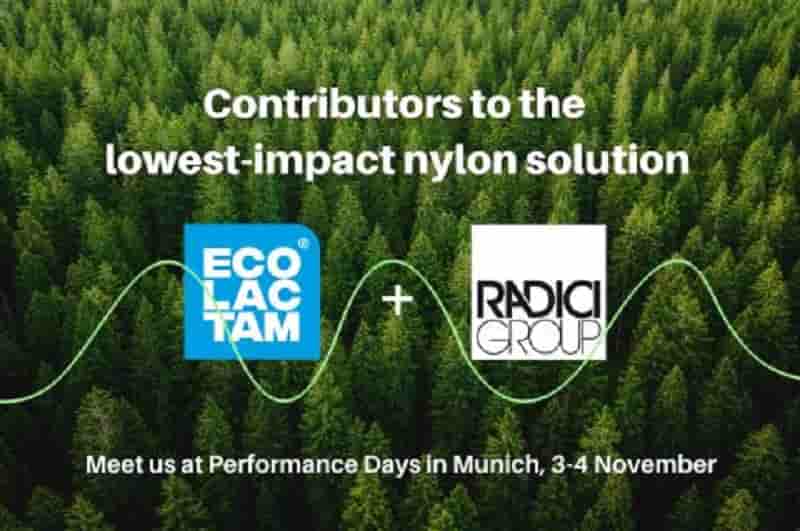
The war in Ukraine first caused oil price volatility, which increased as surging COVID-19 cases in China led to fresh lockdowns, hitting demand and disrupting supply chains. China is the world’s second biggest economy and largest oil importer.
Now Russia’s decision to reduce flows of natural gas to Europe means the continent has to look forward to a winter of potential rationing, which could hit chemical production. Tightened supply has also sent gas prices soaring, with high costs forcing production cuts, especially in fertilizers.
India is facing a shortage of fertilizers and edible oil amid wide-ranging trade disruptions as the Ukraine war rages on, with financial sanctions tightening on Russia.
Europe’s energy challenge is immense and put into stark relief by the response to Russia’s war in Ukraine. Cutting the ties that bind EU and non-EU nations to Russian gas and oil will be extremely painful this year and in years to come.
This topic page examines the impact of the Ukraine conflict on oil, gas, fertilizer and chemical markets.

-Stop gas, solar energy will cost 10 times less: the study – Renewables, wind and solar
Rystad Energy expects renewables will grow from 2023 onwards, allowing Europe to save on bills.
Now more than ever, Europe is at a crossroads. Taking a road, it would continue to depend on the energy produced by gas; by choosing the other path, it would warmly embrace renewables. But if there was no doubt about which path was the best, the latest study by the research institute Rystad Energy puts the seal.
According to the report, today’s geopolitical chessboard means that running a gas plant, in the long run, costs 10 times more than installing new photovoltaic systems. And things would not change much with a drop in prices, because the fossil would struggle to remain competitive compared to the green, even in the coming years.
Watershed 2023
Let’s try to understand by looking at the numbers. The war in Ukraine has skyrocketed energy costs. The TTF indices (Title Transfer Facility, the European reference market for gas trading) went from an average of 46 euros per megawatt hour in 2021 to 134 € / MWh in 2022, which means an increase of 187%. In August there was even a peak of 330 € / MWh.
Rystad Energy’s prediction is that the new reality, combined with European policies, will favor the boom in renewables. However, it will take some time to see real changes. Already in the first 7 months of this year, the production of electricity from gas increased by 4%, driven by the decline in hydroelectric and nuclear power.
But 2023 could be the year of the turning point.
The ignition of wind and solar plants with a total of 50 GW, together with 30 GW of French nuclear power, will certainly reduce the need for gas. A look further shows that in 2025 we will have over 100 GW of new capacity.
They will become 333 GW in 2028, enough to generate 663 TWh of electricity, but on the condition that all funds currently allocated to gas are diverted to renewables. For 2050 we are talking about 2,000 TWh. And all this adds up to the basic scenario of the research institute, which speaks of 2,385 GW of photovoltaics and wind and 520 GW of batteries installed, again in the middle of the century.
“European decision makers – comments Carlos Torres Diaz, head of the energy sector at Rystad Energy – must decide whether to continue using expensive and less safe gas or invest in economical renewable energies and storage options.
Gas will continue to play an important role in the European energy mix for a while yet, but the economy and climate concerns will tip the balance in favor of renewable energy, unless fundamental changes occur. ”
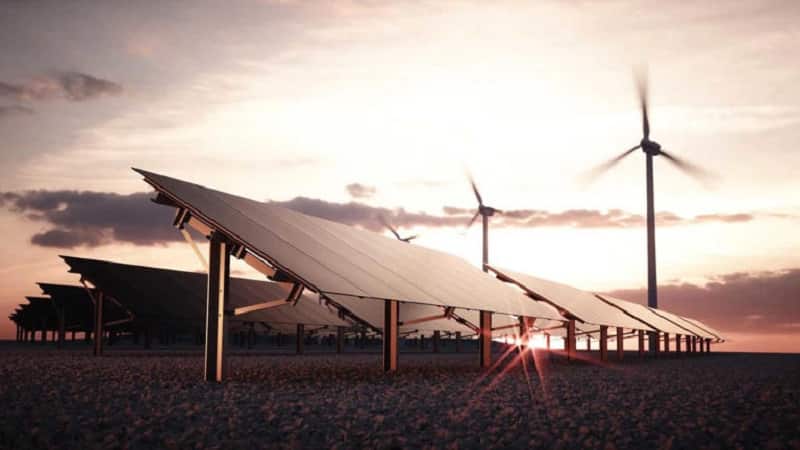
-EREMA Group and INTCO Recycling sign strategic partnership for recycling PET
INTCO is a Chinese recycling company active worldwide that has become one of the largest recyclers and end users of waste expanded polystyrene (EPS). Every year, INTCO recycles around 100,000 tonnes of EPS waste that it acquires around the globe and processes it into new high-quality consumer goods, such as picture frames, that are then sold in well-known furniture stores. Frank Liu, founder and chairman of INTCO Medical Technology Co., Ltd. and Shandong INTCO Recycling Resources Co., Ltd. also applies this circular economy concept when recycling PET waste. Having been active in this segment for five years, INTCO is planning major investment in the expansion of PET recycling solutions over the next few years.
Recycling capacity is to increase to up to one million tons per year
“We also want to become the leading supplier in this segment and increase our PET recycling capacity from the current level of around 150,000 tonnes a year to one million tonnes in the coming years,” explains Frank Liu: “To do this, we need an experienced and reliable technology partner, which we have with EREMA at our side.”
INTCO has trusted in the technologies and service provided by the Austrian recycling machine manufacturer for more than ten years. Just a few months ago, a VACUNITE® bottle-to-bottle recycling system started production in Malaysia. “We are pleased that INTCO have decided to further intensify their work together with us, focusing on PET recycling,” says Manfred Hackl, CEO EREMA Group GmbH. Regarding the benefits of this partnership, he comments, “INTCO is a partner who also have the end product in mind from the very beginning with their recycling solutions. Promoting a circular economy for plastics is our shared objective, which requires the highest possible quality of recycled pellets. That’s exactly where the strength of our team comes in, as well as our patented technologies, which we are constantly developing together with our customers and partners.”
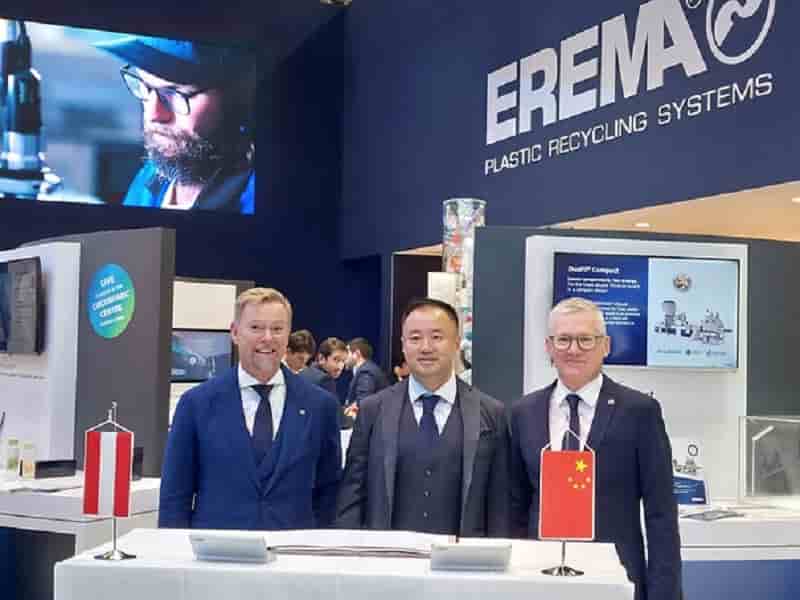
-Samsara ECO develops enzyme-recycled packs – “Infinite plastic recycling” tech
Samsara Eco, an Australian startup that uses enzyme-based technology to break down plastic into its core molecules, announced today it has raised $54 million AUD (about $34.7 million USD) in Series A funding. The company is planning to build its first plastic recycling facility in Melbourne later this year, with the target of full-scale production by 2023.
Investors in the round include Breakthrough Victoria, Temasek, Assembly Climate Capital, DCVC and INP Capital. Existing investors like deep-tech fund Main Sequence, Woolworths Group’s W23 and Clean Energy Finance Corporation (CEFC) also participated.
Samsara launched last year in partnership with the Australian National University. TechCrunch last covered the startup when it raised $6 million earlier this year.
The company’s enzyme-based technology breaks down plastics into their molecular building blocks to produce new plastic products — which can in turn be broken down again, creating what Samsara refers to as infinite plastic recycling.
Samsara’s new funding will be used for expansion, building its library of plastic-eating enzymes and funding its first commercial facility, which it says will be able to infinitely recycle 20,000 tons of plastic starting in 2024. It will also grow its engineering team and expand operations into Europe and North America.
CEO and founder Paul Riley said that since March, when Samsara’s previous round of funding was announced, it’s been focused on expanding its enzyme library, which is now capable of depolymerizing several different types of plastic. Its also worked with partners to develop market solutions using Samsara’s plastic-recycling tech.
Samsara’s tech is capable of breaking down plastic into its core molecules in minutes, regardless of color, type and state, said Riley. Its Melbourne facility will first recycle PET plastic and polyester, which Riley says accounts for about a fifth of plastic created annually. Its long-term mission is to recycle mixed bale plastics and advance its tech to the point where every kind of plastic can be infinitely recycled.
“Given the scale of the plastics crisis, our vision was always to scale infinite plastic recycling as fast as possible,” he said. “For us, this capital raise was about partnering with those that bring industry expertise and commitment to addressing one of the world’s most prominent climate challenges — which is fossil-made plastic — and, in the process, reducing plastic pollution by closing the loop.”
Samsara is also preparing for the launch of its first enzymatically recycled packaging, in partnership with Woolworths Group. The packaging will be on shelves in Woolworths’ supermarkets next year, moving the company toward its goal of recycling 1.5 million tons of plastic per year by 2030. Woolworths Group has committed to turning the first 5,000 tons of recycled Samsara plastic into packaging for its branded products, like vegetables and bakery trays.
Riley said Samsara’s tech is highly tolerant of contamination and can recycle colored plastics, mixed plastics and multi-layered plastic, which means it has applications across a wide range of industries, including packaging, fashion, automative, medical, electronics and construction.
The fashion industry accounts for about 10% of global CO2 emissions. Australia is the second-highest consumer of textiles per person in the world, Riley said, which gives Samsara the opportunity to recycle discarded fast fashion pieces in the form of mixed fiber textiles, reducing the amount of clothing that ends up in landfills.
More….
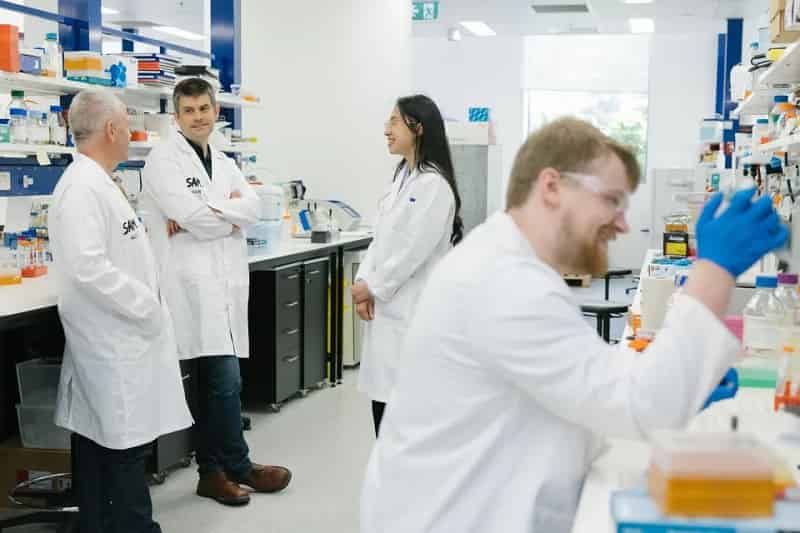
-Meta Materials, a developer of high-performance smart materials and nanocomposites, entered into a Memorandum of Understanding (MOU) in partnership with DuPont Teijin Films and Mitsubishi Electric Europe
Meta Materials, a developer of high-performance smart materials and nanocomposites, entered into a Memorandum of Understanding (MOU) in partnership with DuPont Teijin Films and Mitsubishi Electric Europe. Using META’s PLASMAfusion, the parties plan to scale a proprietary, high-volume, roll-to-roll manufacturing system for film-based, coated copper current collectors.
PLASMAfusion uses a pulsed electron beam in a mid-range vacuum to ablate a solid-state target containing the source material(s). Unlike the typical channel-spark discharge deposition, which is limited by the short lifetime of the cathode, PLASMAfusion deploys a virtual plasma cathode which is generated prior to each pulse of the electron beam.
Each PLASMAfusion pulse begins with a generation of plasma through ionization of the operation gas. The electron beam ablates the target and then the plasma cathode decays, leaving a space for ablated target material in the form of a plasma plume to propagate toward a substrate, where it forms a film. Repetition of the pulse at a rate in the range of 1–600 Hz allows a film to grow on the substrate with controlled growth rate and properties.
More….
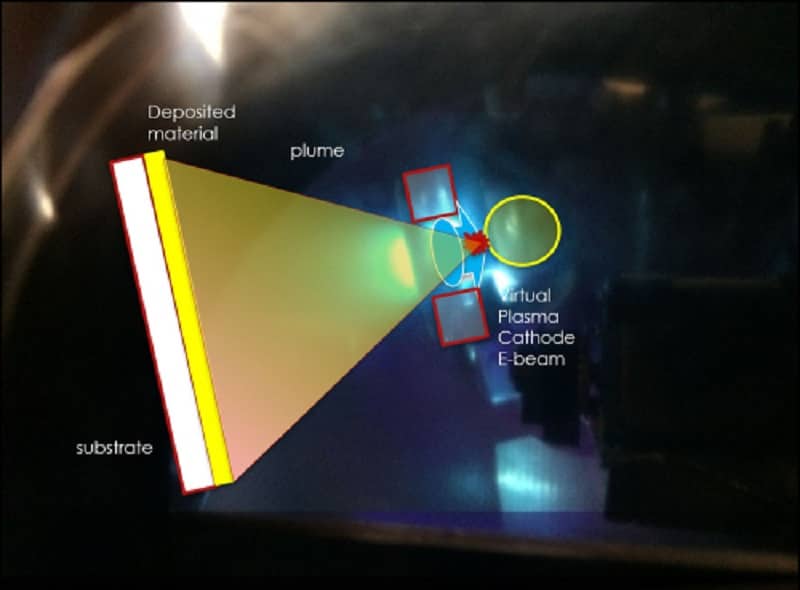
-Greater Boise continuing program to give hard-to-recycle plastic waste a second life
Project led by the Hefty® EnergyBag® program and Dow, in collaboration with ByFusion, offers sustainable ways to reuse hard-to-recycle plastic waste
Today, Reynolds Consumer Products, Dow , and ByFusion are announcing a new business agreement that continues their collaboration in the greater Boise area to divert hard-to-recycle plastics from the landfill.
Today’s announcement follows a successful demonstration project that began in July 2021 to collect plastic waste from the community through the Hefty® EnergyBag® program and convert the materials into ByBlocks®. This novel materials agreement signifies a substantial milestone for ByFusion’s Blocker technology as an effective mechanical recycling process and extends the collection for another year with the ultimate goal of increasing circular solutions in Idaho.
Since July 2021, the ByFusion pilot project has taken hard-to-recycle plastic materials collected through Boise’s existing Hefty® EnergyBag® program and has converted them into ByBlocks®, the first-ever construction-grade block made from plastics previously destined for landfills. The pilot phase aimed to create new, circular uses for up to 72 tons of hard-to-recycle plastics and within a year has exceeded that objective with 80 tons repurposed to date.
“ByFusion is thrilled with the results from our ongoing partnership with the Hefty® EnergyBag® program and Dow,” said Heidi Kujawa, CEO, ByFusion. “After seeing the impressive results from the Boise community, I’m confident about our ability to meet our goal of placing a Blocker System in every city.”
The ByFusion demonstration project reveals how communities of all sizes can put their hard-to-recycle plastic waste to good use by converting it into a building material that meets community needs. In February 2022, the City of Boise unveiled a new park bench made of ByBlocks® in Manitou Park. Boisesourced ByBlocks® may also be used to create community infrastructure like create perimeter walls, privacy fencing, sound walls, bus stations, dumpster enclosures, storage facilities, and residential projects and much more.
“After a successful first year, we now have a proven solution to prevent more plastic from ending up in landfills,” said Jennifer Ellis, City of Boise Public Works Commissioner. “We’re enabling sustainable development in Boise while encouraging recycling in our community. I’m grateful for our citizens who have participated in the Hefty® EnergyBag® program to collect plastic waste. Without their efforts, we wouldn’t have the materials needed to develop sustainably with ByBlocks®. I’m excited to see how the program’s continuation will impact further growth in Boise as well as expand plastic recycling in other areas.”
The Hefty® EnergyBag® program in the Greater Boise area began in 2018 as community members purchased the orange bags at stores in the community and placed hard-to-recycle plastics into the bags for curbside pickup with their normal recycling. Haulers pick up and deliver the bags to local recycling facilities as part of their routine service and schedules.
“By partnering with Dow and ByFusion, we’ve seen how a local community can come together to collect hard-to-recycle plastics through the Hefty® EnergyBag® program and convert them into valuable resources,” said Lisa Burns, Senior Vice President, Sustainability, Reynolds Consumer Products. “Greater Boise has responded so favorably to the program and helped send 80 tons of plastic through ByFusion’s Blocker process. Across all Hefty® EnergyBag® projects in Boise, that brings the total material diverted to over 1000 tons since the initial launch in this community. I’m happy to see such a positive example of the program in action, and I’m eager to continue exploring new end-usage opportunities in othercommunities.”
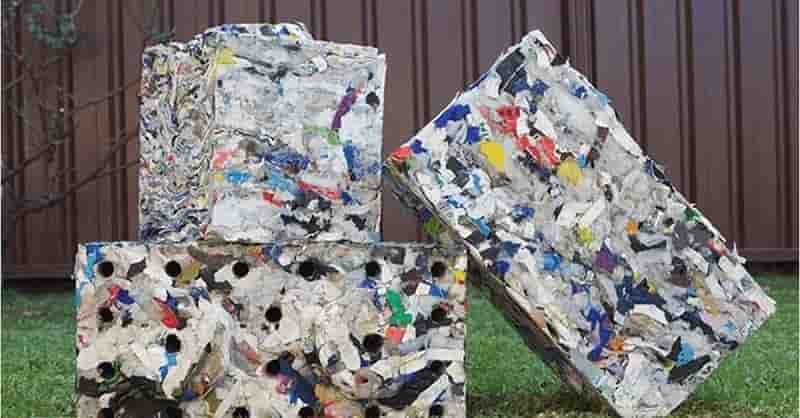
On the occasion of the Abu Dhabi International Petroleum Exhibition and Conference (ADIPEC), one the most important international event of the natural resources industry, Maire Tecnimont’s subsidiary NextChem, through the associate company GCB Polymers, inaugurates a new re-processing and upcycling plant for polymers today in the Kezad Industrial Zone, in the UAE capital city Abu Dhabi. This new plant processes a very wide range of polymer products, from near to prime to the lower end of plant scraps, post-industrial and post-consumer waste, and also recycled polymers.
The plant is capable of both improving and upgrading lower-quality polymers (such off-spec products, plant scraps) and upcycling plastic waste into higher-value, qualified products fit for specific industrial applications, thus representing an effective contribution to the development of a circular economy.
Located between Dubai and Abu Dhabi in the largest industrial and free trade zone in the Middle East, the plant was built by GCB Polymers, a joint venture between NextChem, P2 Polimeri and Polyme General Trading. GCB Polymers is a pioneer investor at the Kezad Polymer Park, a plastics value chain ecosystem located close to the heart of a large industrial zone, in support of UAE Circular Economy Policy, in country value and contributing to a new circular economy approach in the UAE.
“The plant at Kezad is an example of Made in Italy know-how, which was developed at home and now has been exported to help countries like the UAE develop circular economy on an industrial scale,” said Maire Tecnimont Chairman Fabrizio Di Amato at the inauguration of the plant. “By converting lower quality polymers into higher value products, and at the same time upcycling plastic waste, we are industrializing an innovative and effective way to decisively put circularity into the picture in the UAE. We are glad to keep on supporting the Country in the realization of its vision in the energy transition with more energy produced and less emissions.”
The plant will use the nearby deep-water Khalifa Port on a daily basis to import and export products and will reach the production of as much as 180,000 per year tons of polymers in the next few years. These polymers can be used to make products for the home, garden furniture, pipes, packaging, and many other applications.
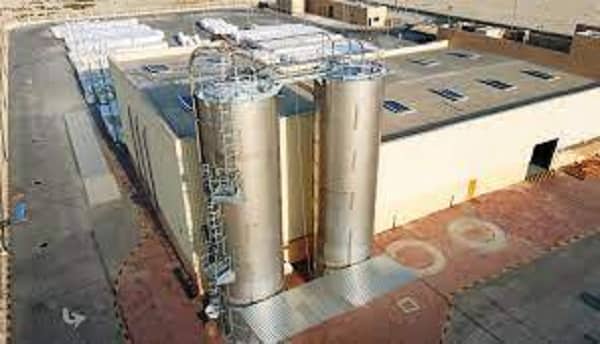
Enzyme-recycled – Ukraine-war
